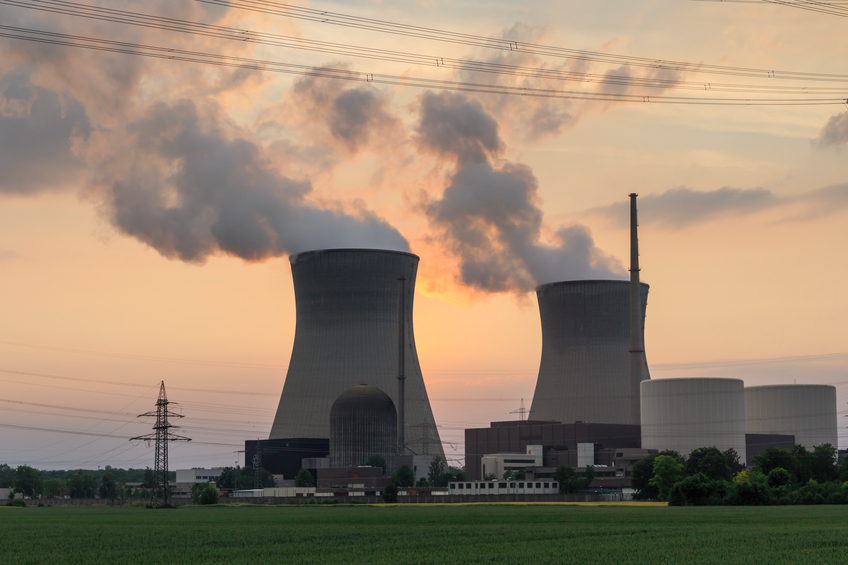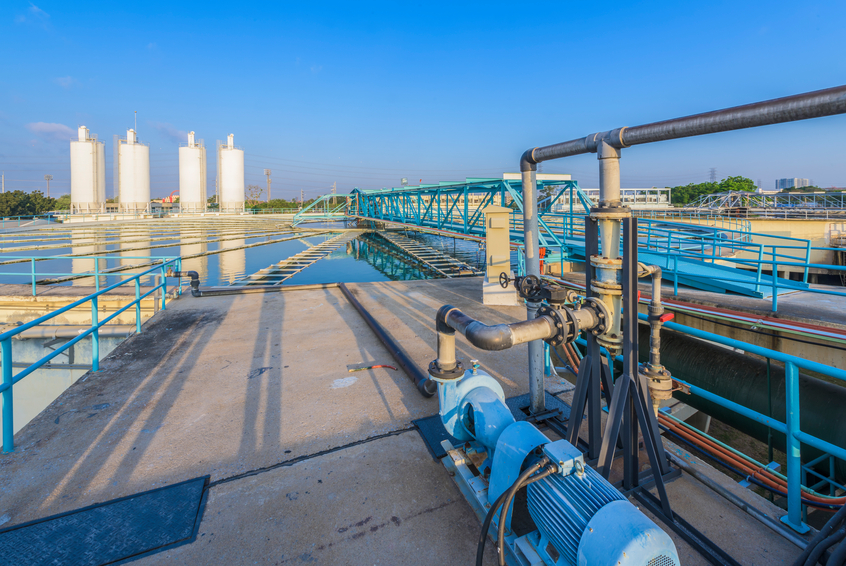Maryland Industrial 16 PDH Discount Package 2
Courses in this Package
Radiation Detectors for Industrial Facility Systems (D06-001)
Airport Snow and Ice Control Equipment (D03-006)
Guidelines for Estimating Unmetered Industrial Water Use (M02-059)
Innovating Clean Energy Technologies in Advanced Manufacturing: Process Heating (D03-007)
General Principles of Engineering Ethics (LE2-016)

This online engineering PDH course provides a basic understanding of instrumentation and control necessary for safe operation and maintenance of energy facilities and their support systems. In particular, this course describes the principles of radiation detection, detector operation, circuit operation, and specific radiation detector applications.
This 6 PDH online course is applicable to industrial and nuclear engineers, construction and design personnel, technical staff and facility operators who are interested in gaining a better understanding of radiation detectors.
This PE continuing education course is intended to provide you with the following specific knowledge and skills:
- Radiation detection terminology
- Radiation types
- Circuitry and circuit elements
- Types of detectors
- Types of counters
- Types of ionization chambers
- Types of nuclear instrumentation
In this professional engineering CEU course, you need to review Module 6, "Radiation Detectors" of the Department of Energy Publication DOE-HDBK-1013/2-92, "Instrumentation and Control".
Upon successful completion of the quiz, print your Certificate of Completion instantly. (Note: if you are paying by check or money order, you will be able to print it after we receive your payment.) For your convenience, we will also email it to you. Please note that you can log in to your account at any time to access and print your Certificate of Completion.

This online engineering PDH course provides guidance about the selection process for snow removal and ice control equipment.
The selection process involves three components: identifying the type of equipment for a specific task, determining the number of such equipment, and using the recommended equipment specification to better ensure that the equipment performs the required task.
Airport operators should maintain runways and taxiways if possible, to a “no worse than wet” condition during winter storms. To meet this challenge, the purchase of snow and ice control equipment will not only require significant financial commitments, but also require careful planning and a fundamental understanding of snow and removal equipment.
This 3 PDH online course is intended for industrial, mechanical and electrical engineers, as well as other technical personnel interested in learning more about the equipment used to control snow and ice at airports.
This PE continuing education course is intended to provide you with the following specific knowledge and skills:
- Understanding how snow and ice control equipment are classified to the specific task(s) that the equipment is designed to perform
- Familiarizing with the selection process for various snow removal and ice control equipment
- Learning about the different types of snow removal and ice control equipment
- Familiarizing with the operational standards and compliance testing process
Upon successful completion of the quiz, print your Certificate of Completion instantly. (Note: if you are paying by check or money order, you will be able to print it after we receive your payment.) For your convenience, we will also email it to you. Please note that you can log in to your account at any time to access and print your Certificate of Completion.

This online engineering PDH course provides a systematic approach to estimate industrial water use in evaporative cooling systems, steam boiler systems, and facility wash applications.
Executive Order 13514 requires Federal agencies to develop a baseline for industrial, landscaping, and agricultural water use. Measuring actual water use through flow meters is the best method to develop this baseline. However, there are instances where Federal sites do not meter these applications, so developing a baseline will be problematic.
The intent of this course is to assist Federal agencies in the baseline development by providing a methodology to calculate unmetered sources of industrial water use utilizing engineering estimates.
This 2 PDH online course is applicable to mechanical and industrial engineers, Federal agencies and professionals who are interested in learning how to estimate industrial water use in various engineering applications.
This PE continuing education course is intended to provide you with the following specific knowledge and skills:
- Gaining an overview of water provisions that require Federal agencies to improve water use efficiency and management
- Learning how to estimate industrial water use in evaporative cooling systems, steam boiler systems, and facility wash applications
- Familiarizing with key terms, standard calculations, industry norms, and general rules of thumb pertaining to water usage
- Understanding the technical explanation for the methodology used to estimate industrial water usage
Upon successful completion of the quiz, print your Certificate of Completion instantly. (Note: if you are paying by check or money order, you will be able to print it after we receive your payment.) For your convenience, we will also email it to you. Please note that you can log in to your account at any time to access and print your Certificate of Completion.

This online engineering PDH course provides information about the energy savings potential for process heating systems in the manufacturing industry.
Process heating accounts for about 70% of all process energy (energy applied to convert material into manufactured products) used in the U.S. manufacturing sector. Past research investments in process heating and related topics have led to innovations that have improved industrial energy efficiency. Although no significant, pervasive process heating breakthroughs have been adopted recently by industry, incremental technology advances have been achieved in a few areas.
Process heating unit operations are fundamental to materials transformations and a wide range of manufacturing operations. Advances in process heating technologies could not only lead to lower manufacturing energy and emissions and associated costs, but could enable the manufacture of improved materials, technologies, and products.
This 3 PDH online course is intended for mechanical, chemical, sustainability and industrial engineers as well as others interesting in learning more about the potential energy saving opportunities for process heating systems in the U.S.
This PE continuing education course is intended to provide you with the following specific knowledge and skills:
- Familiarizing with the concepts and definitions of industrial process heating
- Understanding the distinction between fuel, steam, electrical, and hybrid-based process heating systems
- Learning about various technology advances and opportunities for energy savings / energy reduction
- Familiarizing with the risks, uncertainties, and other considerations associated with industrial process heating systems
Upon successful completion of the quiz, print your Certificate of Completion instantly. (Note: if you are paying by check or money order, you will be able to print it after we receive your payment.) For your convenience, we will also email it to you. Please note that you can log in to your account at any time to access and print your Certificate of Completion.

This online engineering PDH course presents the principles of engineering ethics that every engineer is expected to live by when practicing their profession.
Engineering ethics is (1) the study of moral issues and decisions confronting individuals and organizations involved in engineering and (2) the study of related questions about moral conduct, character, ideals and relationships of peoples and organizations involved in technological development (Martin and Schinzinger, Ethics in Engineering).
This course describes the fundamental legal concepts with which very engineer should be familiar. It also presents unique disciplinary case studies selected from across the nation, as well as hypothetical ethical challenges that demonstrate how difficult it can be to apply the code of ethics for engineers.
This 2 PDH online course is applicable to all professional engineers who are either required to fulfill 2 PDH in engineering ethics or are interested in broadening their understanding of what it means to practice and uphold the honor and integrity of their engineering profession while holding the utmost safety, health, and welfare of the public.
This PE continuing education course is intended to provide you with the following specific knowledge and skills:
- Understanding the common definition of ethics regarding engineering
- Learning about the important principles of the engineer’s professional responsibility
- Learning the do’s and don’ts through several ethical and disciplinary cases
- Understanding what it means to practise and uphold the honor and integrity of the engineering profession
Upon successful completion of the quiz, print your Certificate of Completion instantly. (Note: if you are paying by check or money order, you will be able to print it after we receive your payment.) For your convenience, we will also email it to you. Please note that you can log in to your account at any time to access and print your Certificate of Completion.